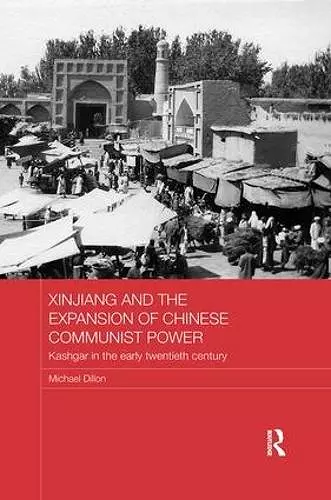Xinjiang and the Expansion of Chinese Communist Power
Kashgar in the Early Twentieth Century
Format:Paperback
Publisher:Taylor & Francis Ltd
Published:10th May '17
Currently unavailable, and unfortunately no date known when it will be back
This paperback is available in another edition too:
- Hardback£160.00(9780415584432)

Xinjiang, China's far northwestern province where the majority of the population are Muslim Uyghurs, was for most of its history contested territory. On the Silk Road, a region of overlapping cultures, the province was virtually independent until the late nineteenth century, nominally part of the Qing Empire, with considerable interest taken in it by the British and the Russians as part of their Great Game rivalry in Asia. Ruled by warlords in the early twentieth century, it was occupied in 1949-50 by the People's Liberation Army, since when attempts have been made to integrate the province more fully into China. This book outlines the history of Xinjiang. It focuses on the key city of Kashgar, the symbolic heart of Uighur society, drawing on a large body of records in which ordinary people provided information on the period around the communist takeover. These records provide an exceptionally rich source, showing how ordinary Uyghurs lived their everyday lives before 1949 and how those lives were affected by the arrival of the Chinese Communist Party and its army. Subjects covered by the book include Eastern Turkestan independence, regional politics, local government, the military, taxation, education and the press.
"Dillon (formerly, Univ. of Durham, UK), a specialist on contemporary China, provides a detailed history of the city of Kashgar in Xinjiang Province in the first decades of the 20th century, arguing that it was key to Xinjiang’s incorporation into the People’s Republic of China. Dillon’s previous published works on Islam in China and Xinjiang, such as China: A Modern History (CH, Jul'11, 48-6451), naturally culminate in this city history. Readers should be especially intrigued with the many photographs of 1930s Kashgar taken by Swedish missionaries, which provide a nice visual counterpoint to Dillon’s appropriately complex narrative describing the swirl of personalities and states involved in the last phase of the “great game” at that far corner of China. China specialists and advanced students will be particularly grateful for Dillon’s extensive use of important Chinese primary sources on Xinjiang, and for his attempt to see Kashgar in that turbulent period from several perspectives. All readers will find his description of key personalities helpful. For background and comparison, instructors should review earlier works on the history of the province and on this period, such as Andrew D. W. Forbes's Warlords and Muslims in Chinese Central Asia (1986) and James A. Millward's Eurasian Crossroads: A History of Xinjiang (CH, Feb'08, 45-3349)." --M. C. Brose, University of Wyoming
Summing Up: Highly recommended. Upper-division undergraduates and above - CHOICE
ISBN: 9781138079533
Dimensions: unknown
Weight: 530g
288 pages